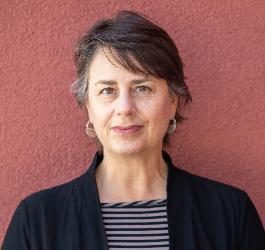
- This event has passed.
Why Elementary Kids Need Recess
January 19, 2022 @ 12:00 pm – 1:00 pm
Many educators and policymakers believe recess is simply fun and games, and easily dispensable to make room for more serious educational goals. The reality is that recess serves an important role for the elementary student – providing the key time during the school day when children can practice their social and emotional skills in an unregulated environment as well as be physically active and take a break from the rigors of academic learning. With the social isolation and lost connection to school experienced by children worldwide due to the pandemic, recess is critically important to help children overcome trauma and reintegrate into the school environment. In this talk, Professor London will share findings from her 10-year research collaboration with the national nonprofit organization Playworks, which culminated in the 2019 book Rethinking Recess: Creating Safe and Healthy Playtime for All Children in School (Harvard Education Press).

Rebecca London
Associate Professor of Sociology, UCSC
Professor Rebecca London’s research focuses on the ways that communities, educational institutions, and community organizations support young people to be healthy and successful. She is a community-engaged researcher who works closely with nonprofits and government agencies to generate actionable research to address the community’s pressing needs. She is co-founder and Director of Campus + Community, a research center devoted to supporting community-engaged research at UC Santa Cruz. She has conducted research in multiple fields, including K–12 and postsecondary education, cross-sector approaches to “whole student” development, health and wellness, afterschool programs, and social welfare programs. Professor London is author of Rethinking Recess: Creating Safe and Healthy Playtime for All Children in School (2019) and co-editor of From Data to Action: A Community Approach to Improving Youth Outcomes (2013). Her recent work has been published in journals such as the Teaching Sociology, Journal of School Health, Educational Researcher, and the American Journal of Preventive Medicine.

